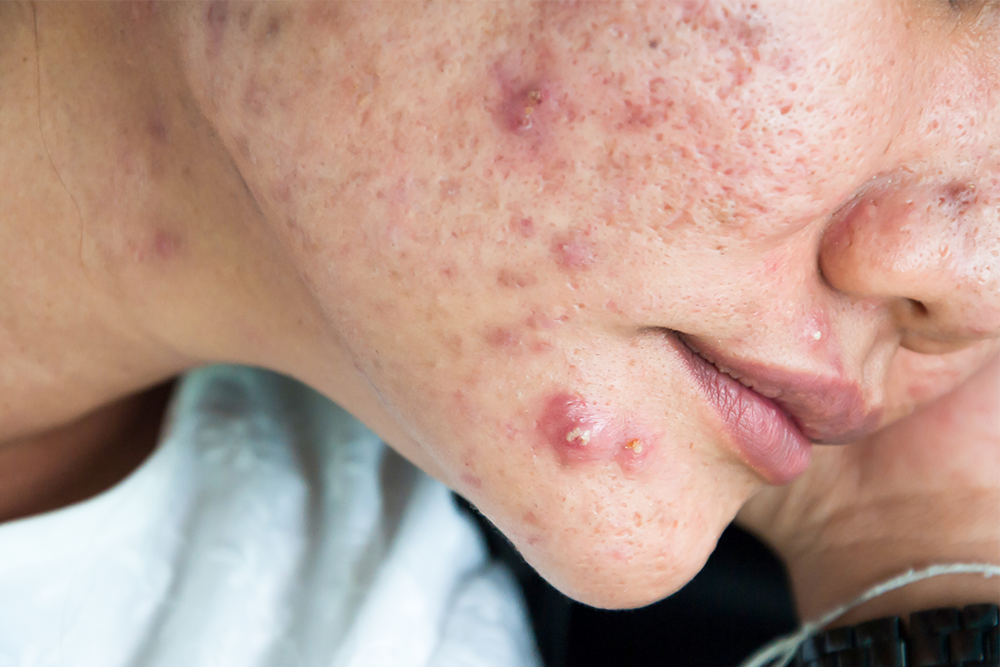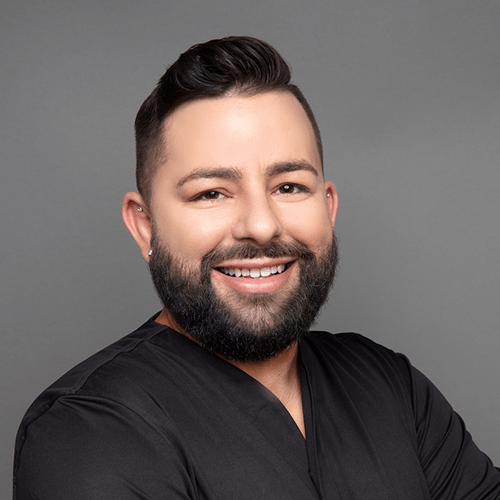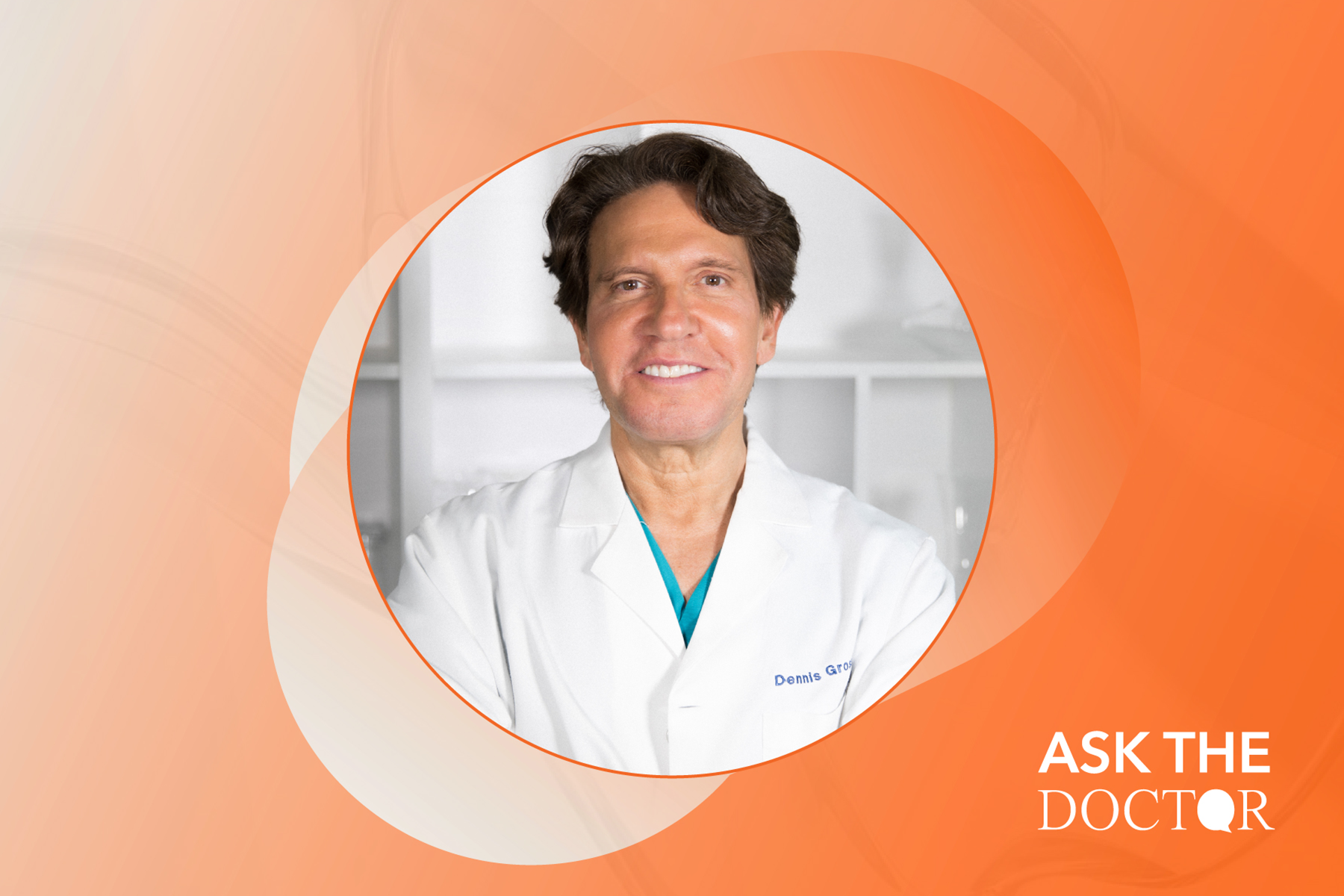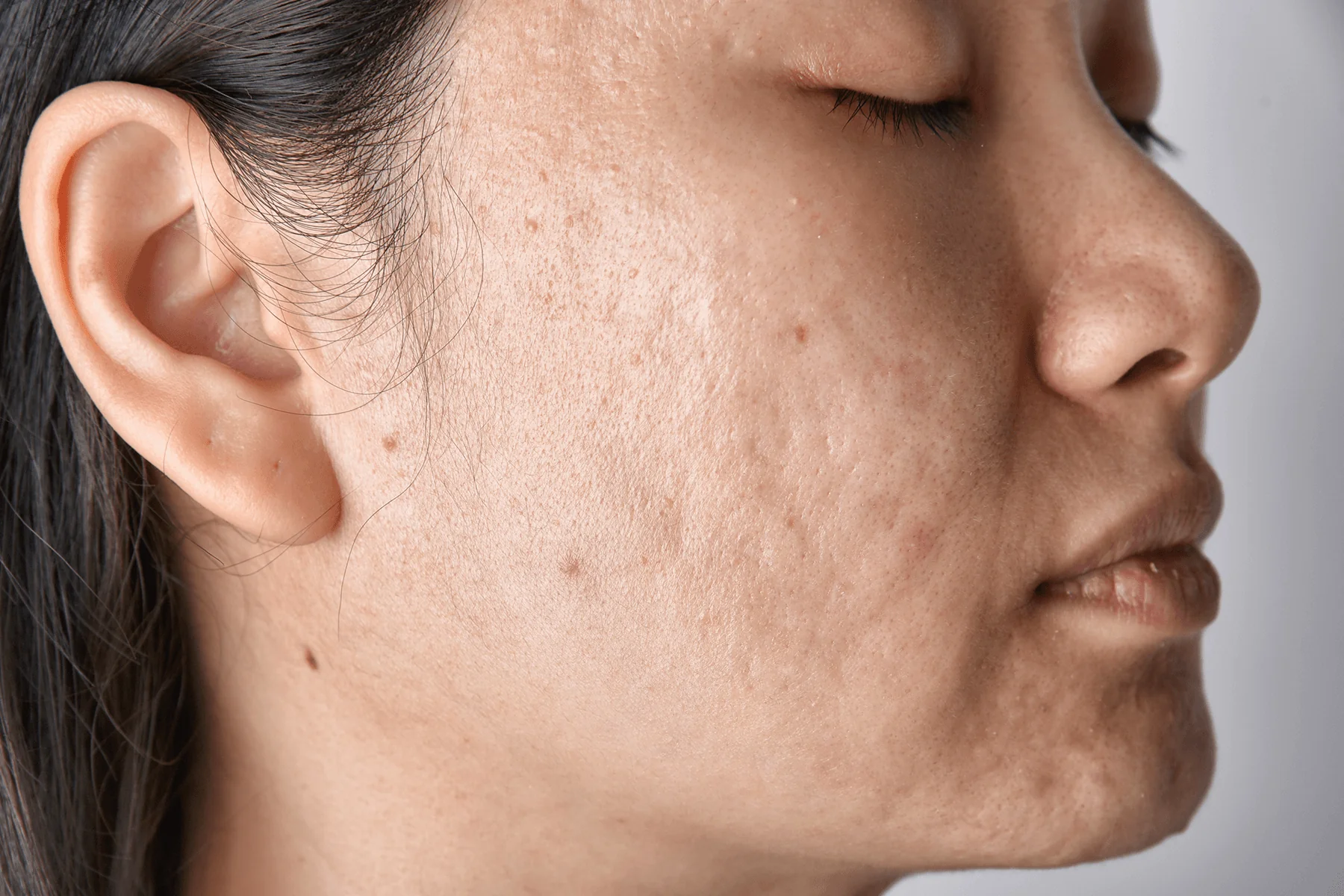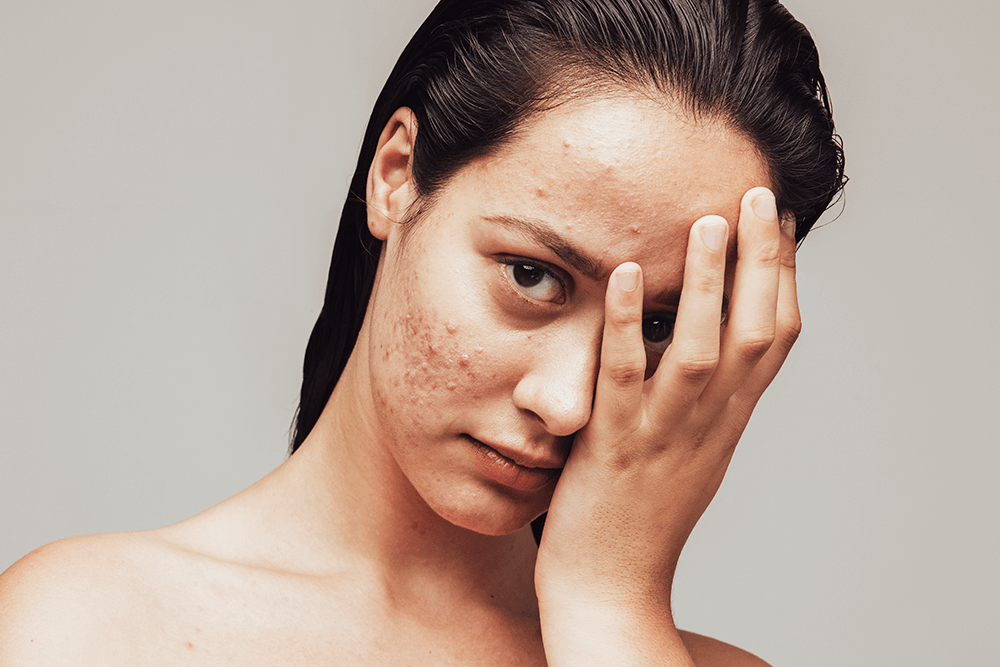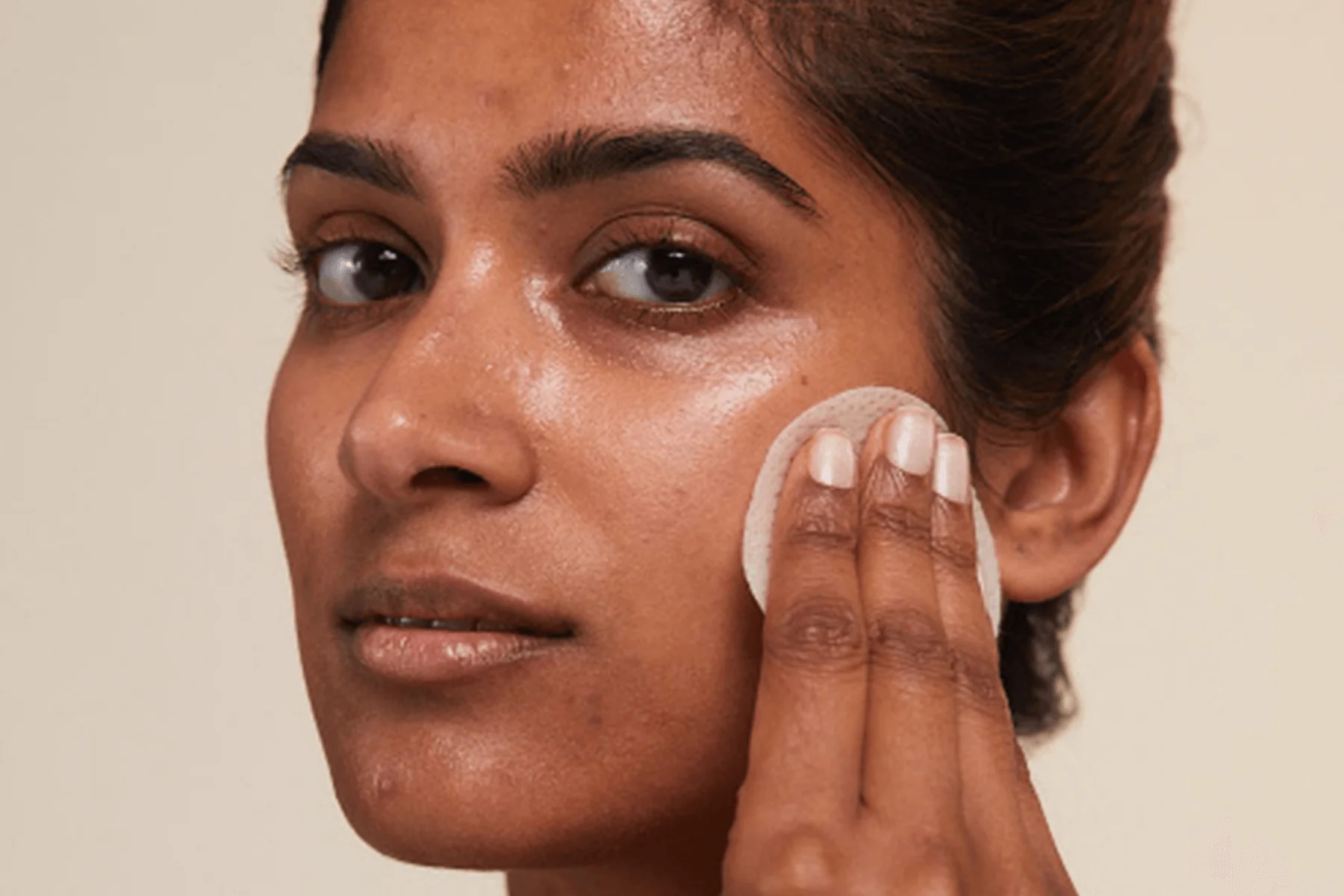The+Source
Table of Contents
Let’s be honest: There’s no “good” kind when it comes to breakouts. But of all the types of acne, the cystic variety is hands-down the worst. Not only is it painful, an acne cyst can also take the longest amount of time to clear up, and persistent cystic acne has a high probability of causing scarring. It’s a condition no one wants to deal with, but with the proper preventative skincare routine, you can lessen the likelihood of cystic acne in your face’s future. Read on to find out how to treat cystic acne and build a skincare routine with Dr. Dennis Gross.
What is cystic acne?
Often called “lurkers” because of the way they can form under skin without really coming to the surface (the way a blackhead or whitehead does), acne cysts are the subterranean bumps that can be swollen, red, and hurt to touch. Technically, there are acne cysts and acne nodules. Cysts contain pus; nodules don’t. But for all intents and purposes, they’re otherwise the same — including their treatment. (When we talk about “cysts” here, we’re using that as a blanket term to cover both.)
What causes cystic acne?
Cystic acne is the result of a pore that’s stuffed with so much oil, dead cells, and bacteria that it swells with inflammation (hence the painful part). Of course, some people never have all three factors present in their skin and never get so much as a pimple. While those people are unicorns, it’s true that many things that can make you predisposed to acne flareups. Genetics play a role, of course. If your parents were plagued by acne, you likely will be, too. (Sorry.) Hormones are another huge influence. Whether you’re male or female, your hormone levels are constantly shifting throughout your lifetime (which is the reason cystic acne isn’t just for teenagers). While there’s no proven direct cause-and-effect link between stress and breakouts, stress does impact hormones, so you can draw your own conclusions there.
How do you clear up cystic acne?
Although this may all sound grim, hope is not lost! You just need the right regimen to treat your cystic acne.
Step 1 – Cleansing
Start with an appropriate cleanser. (There is no “next step” in an anti-acne skincare routine until you wash your face.) Since you know that oil, dead cells, and bacteria are all contributing to your problem, you should select a gentle cleanser that addresses all three by dissolving oil, exfoliating cells, and killing bacteria through a combination of ingredients like phytic acid and farnesol (to wipe out sebum) and alpha and beta hydroxy acids (to eliminate dead skin cells). The key word here is “gentle.” The last thing you want is to treat skin harshly by overstripping it and drying it out. That approach can actually backfire and make your cystic acne worse. Dr. Dennis Gross Alpha Beta AHA/BHA Daily Cleansing Gel contains all the ingredients you need to address acne while treating your complexion with kid gloves.
Step 2 – LED
Thanks to developments in technology, an anti-acne skincare routine now encompasses more than just topical skincare. Independent clinical research has shown that blue light-emitting diodes (LEDs) can kill P. acnes bacteria (i.e. the type responsible for your current situation). LED device treatments are painless with no downtime and can be done at home in as little as three minutes. Dr. Dennis Gross DRx SpectraLite FaceWare Pro features 62 blue LEDs, in addition to 100 red LEDs that tackle fine lines and discoloration, and is FDA cleared.
Step 3 – Exfoliation
Exfoliate every day. When dead skin cells mix with oil, they create a sludge that quickly blocks a pore. Eliminate the dead cells, and you remove a vital component of a pore plug. Chemical exfoliants are preferable to the mechanical kind because — paradoxically enough — acids are gentler on skin. An alpha hydroxy acid, for example, simply dissolves the glue holding dead cells to the surface of the skin, whereas a grainy skin polish, rips those dead cells off skin, regardless of whether or not they’re actually ready to be removed. If you’re trying to prevent cystic acne, you’ll likely want to bring out the big guns, meaning all the exfoliating acids you can. Find a mix of seven ultra-potent alpha and beta hydroxy acids in Dr. Dennis Gross Alpha Beta Extra Strength Daily Peel.
Step 4 – Acne Treatment
Layer on your treatment product. Now that you’ve addressed the dead cells, it’s time to tackle the bacteria that’s also contributing to your cystic acne. Salicylic acid, a beta hydroxy acid, is famous for eradicating P. acnes bacteria. While it’s also in your Dr. Dennis Gross Alpha Beta Extra Strength Daily Peel, it’s neutralized by the second step of that treatment. You’ll want to add a higher percentage of salicylic acid to skin and let it work until the next time you wash your face. Dr. Dennis Gross DRx Blemish Solutions Acne Eliminating Gel is formulated with two percent salicylic acid, plus pore-refining, oil-controlling niacinamide.
Step 5 – Moisturizing
All types of skin need hydration — even the types prone to breakouts. (See Step 1 for a reminder on the perils of trying to turn skin into the Sahara.) Your moisturizer isn’t going to fuel cystic acne, as long as you select an oil-free formulation. Bonus points if it also includes exfoliating ingredients to address those pesky dead skin cells. Dr. Dennis Gross Alpha Beta Daily Moisturizer is not only oil free, it’s also full of skin-renewing alpha and beta hydroxy acids.
Step 6 — Bonus round
Sometimes, you need a spot treatment, especially overnight. This is not the time for toothpaste, despite what you may see on TikTok. Instead, reach for something that’s actually formulated for faces, like a clay mask. Clay is well-known for its ability to absorb oil without irritating or dehydrating skin. It’s a key ingredient in Dr. Dennis Gross DRx Blemish Solutions Clarifying Mask, along with colloidal sulfur to balance sebum production.
